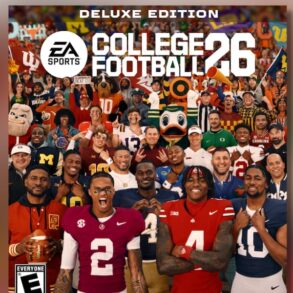DESTIN, Fla. — In a significant pivot from the highly publicized push for automatic qualifiers in the next iteration of the College Football Playoff, the SEC on Tuesday took a heightened interest in a 16-team model that would include the five highest-ranked conference champions and 11 at-large bids.
SEC commissioner Greg Sankey said he talked with the league’s football coaches at length about the alternative model.
“They talked about — I’ll call it a 5+11 model — and our own ability to earn those berths,” Sankey said at the conclusion of the second day of spring meetings. “… At the coaching level, the question is, why wouldn’t that be fine? Why wouldn’t we do that? We talked about 16 with them. So, good conversation, not a destination, but the first time I’ve had the ability to go really in depth with ideas with them.”
Sankey, the other FBS commissioners and Notre Dame athletic director Pete Bevacqua need to determine the playoff format for 2026 and beyond by Dec. 1. It’s a deadline Sankey said isn’t ideal for the SEC’s timing to determine if it wants to stay with eight conference games or change to nine.
There’s a disconnect between the league’s athletic directors and coaches, which appeared Tuesday in public comments. Florida AD Scott Stricklin and Texas A&M AD Trev Alberts were both adamant about wanting automatic qualifiers, which would go along with the league adopting a nine-game league schedule.
But coaches such as Ole Miss‘ Lane Kiffin said they’d prefer a model with the 16 best teams. Georgia‘s Kirby Smart said he wanted a model that would include the most SEC teams possible, pointing to the SEC’s other sports and their ability to flood the postseason because of strength of schedule.
In the meeting room, sources told ESPN, it appeared that the athletic directors were focused on nine SEC games and a model with four automatic qualifiers. The coaches voiced strongly that they wanted a model with five automatic qualifiers and 11 at-larges, with a preference to stay at an eight-game league schedule.
The coaching perspective hints at potential roadblocks for playoff expansion, as there’s sentiment that other leagues wouldn’t want the playoff to grow — especially all the way from 12 to 16 teams — if the SEC didn’t go to a nine-game conference schedule.
When asked Tuesday how confident he was that the CFP management committee could come to an agreement on the future format by the Dec. 1 deadline, Sankey referred to a recent conversation he had with former SEC commissioner Roy Kramer. Sankey said he takes comfort in the fact past commissioners were able to disagree and “always figure a way out.”
“There’s a responsibility to figure that out,” Sankey said. “We might get mad at the moment, mad at different times. We’ve been able to work together. Different people, but [Kramer’s] description gives me great comfort.”
Sankey said he needs to make a scheduling decision in 2026 but declined to give a specific date.
“So when I express frustration about delays that are happening for decisions not made, those manifest themselves both in that room. We didn’t spend time on the question what’s the criteria [for selection] look like in this new era. We just kind of sat around and it affects the timing of other decisions. We can control our scheduling decision. We can’t control every other element around this.”
Sankey said he has built some flexibility on the deadline but added that he believes the schedule decision can be made independent of CFP format and the concept of play-in games.
“You can make decisions about what you can control, then you can have influence over other decisions you don’t control — you participate in,” he said. “But the timing is not what I would have designed from an optimal standpoint.”
Stricklin said he can’t support a nine-game league schedule without guaranteed playoff access for the SEC.
“That’s hard for me,” he said. “… There’s not a sport that our league competes in where less than half of our members are not in the postseason except for one, and it happens to be the one we all pay the most attention to. Last year three of our 16 teams were in the playoff. I think that’s a problem systemically with the structure of what we’re trying to do.”
Not everyone in the SEC is sold on automatic qualifiers — for anyone. Kiffin said he was in favor of the 16 best teams because after seeing all of the data and analytics about who would be left out in multiple models, “There’s still flaws in every system.”
This post was originally published on this site be sure to check out more of their content.







